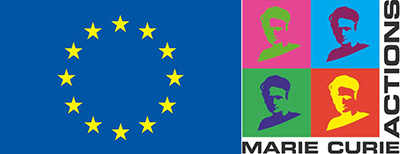Welcome to the BERNADETTE project website! Feel free to bookmark this to keep an eye on the project updates.
Updates
2023
September
- New publication! – Bouranis, L. (2023).
Bernadette: Bayesian Inference and Model Selection for Stochastic Epidemics in R.
Journal of Open Source Software, 8(89): 5612. DOI: 10.21105/joss.05612 Link
July
- Lampros Bouranis will be presenting his work on Bayesian learning of transmission dynamics using exchangeable Gaussian processes at the Greek Stochastics $\nu$’ Meeting at Naxos, Greece [7-10 July].
June
-
New preprint! - Bouranis, L. (2023). Bernadette: Bayesian Inference and Model Selection for Stochastic Epidemics in R
JOSS preprint -
Software announcement - The Bernadette (“Bayesian inference and model selection for stochastic epidemics”) R package v1.1.4 is now available on the Comprehensive R Archive Network (CRAN), see the package webpage. Bernadette provides a framework for Bayesian analysis of infectious disease transmission dynamics via diffusion driven multi-type epidemic models with time-varying epidemiological parameters, with a particular focus on Coronavirus Disease 2019 (COVID-19). It uses the Stan probabilistic programming language and implements the Bayesian epidemic model described in Bouranis et al. For models fit using Markov chain Monte Carlo, it allows for computation of approximate leave-one-out cross-validation (LOO, LOOIC) or the Widely Applicable Information Criterion (WAIC) for model checking and comparison.
The dev branch of the Bernadette Github repository contains a Shiny application which can be activated from the package, aiming to visualize the posterior model outputs. -
Lampros Bouranis presented his work at the MRC Biostatistics Unit, University of Cambridge seminar. The talk is available at the MRC BSU YouTube channel.
-
Lampros Bouranis presented his work at the HERMES Ph.D. Workshop 2023: “Data Science in Business”, which took place in Athens, Greece, at the premises of the Department of Statistics, AUEB.
May
-
Workshop! - Nikolaos Demiris and Lampros Bouranis organized the workshop Statistical modeling of epidemic outbreaks with a fantastic series of talks. A big thank you to our guests who honoured us with their presence! For more information you can visit the workshop webpage.
-
Lampros Bouranis and Prof Ioannis Ntzoufras visited the 1st Senior High School of Markopoulo, participating in the Action “Visits of faculty members to secondary education schools” of the program “Outreach and information program for the school community”, where they presented and discussed the merits of studying at the Department of Statistics at AUEB and career opportunities.
February
Lampros Bouranis participated in the Action “Visits of faculty members to secondary education schools” of the program “Outreach and information program for the school community”, organised by the Department of Statistics, Athens University of Economics and Business (AUEB). Students of the senior high school “Nea Pedia” visited the Computational and Bayesian Statistics Laboratory (Troias Building) at the premises of AUEB. Together with Prof Ioannis Ntzoufras, and PhD candidate Ilias Leriou we discussed our experiences as statisticians, the benefits of studying Science. Lampros also presented how the Marie Curie action’s work relates to our everyday lives.
2022
November
- New preprint! - Bouranis, L., Demiris, N., Kalogeropoulos, K. and Ntzoufras, I. (2022).
Bayesian analysis of diffusion-driven multi-type epidemic models with application to COVID-19.
arXiv
October
This summer Lampros Bouranis presented his work on “Bayesian analysis of diffusion driven multi-type epidemic models with application to COVID-19” (joint with Nikos Demiris, Konstantinos Kalogeropoulos and Ioannis Ntzoufras) at the following conferences/meetings:
- Royal Statistical Society International Conference, Aberdeen, UK (September 2022).
- Greek Stochastics $\mu$’ Meeting at Corfu, Greece (August 2022).
- AUEB-NKUA-Indiana Conference in Biostatistics & Health Analytics, Aegina, Greece (July 2022).
- 3rd research meeting of the School of Information Sciences and Technology, Athens University of Economics and Business, Greece (June 2022).
Contact Details
Email: bernadette.aueb AT gmail.com
Twitter profile: BernadetteMsca
About the project
The objective of this Marie Sklodowska-Curie Action (MSCA) is to develop novel statistical methodology for the modeling of infectious diseases like COVID-19. The success of the interdisciplinary project will lead to a number of multidisciplinary innovations in epidemiology, Public Health policy and statistics, which will contribute to the timely identification of optimal disease control strategies.
The BERNADETTE outputs will be relevant to healthcare and the EU Epidemic intelligence, by:
- Offering novel statistical methodology for the analysis of COVID-19 outbreak data and the description of a number of aspects of the underlying infection pathway of the disease
- Quantifying the effect of non-pharmaceutical interventions based on an epidemic model
- Allowing for the forecasting of future case number scenarios
- Contributing in the assessment of the socio-economic impact of different response strategies for human epidemics in Europe in order to improve European preparedness planning and support decision-making in the framework of national epidemic preparedness plans. The BERNADETTE outputs will contribute to the enhancement of EU scientific excellence.
Inspired by the findings of this MSCA and striving to maximise the impact of the research outcomes, we are planning to organise public engagement activities and to publish papers in highly ranked peer-review journals that will benefit epidemiologists, Public Health policy makers and statisticians.
Summary
Project title: “BERNADETTE”
Period: 24 months in total, starting in May 2021
Fellow: Lampros Bouranis, PhD
Primary Coordinator: Professor Nikolaos Demiris, Athens University of Economics and Business
Secondary Coordinator: Professor Ioannis Ntzoufras, Athens University of Economics and Business
Beneficiary: Department of Statistics, Athens University of Economics and Business
Partner Organisations:
University of Nottingham - Supervisor: Professor Theodore Kypraios
University of Padova - Supervisor: Professor Laura Ventura
Universitat Pompeu Fabra - Supervisor: Professor David Rossell
Funding

This project has received funding from the European Union’s Horizon 2020 research and innovation programme under the Marie Sklodowska-Curie grant agreement No 101027218.
For more information, please visit the European Commission’s Community Research and Development Information Service (CORDIS) webpage.
Useful sources
Marie Sklodowska-Curie Actions - Individual Fellowship programme
Who was Marie Sklodowska Curie? - Biographical